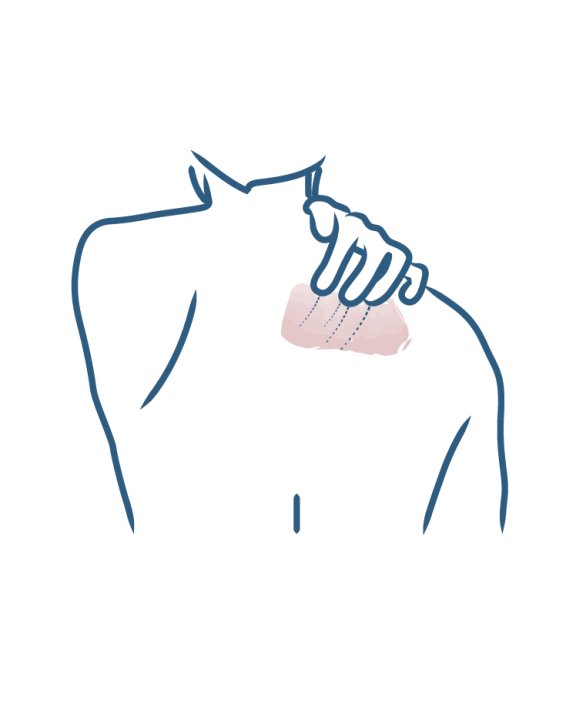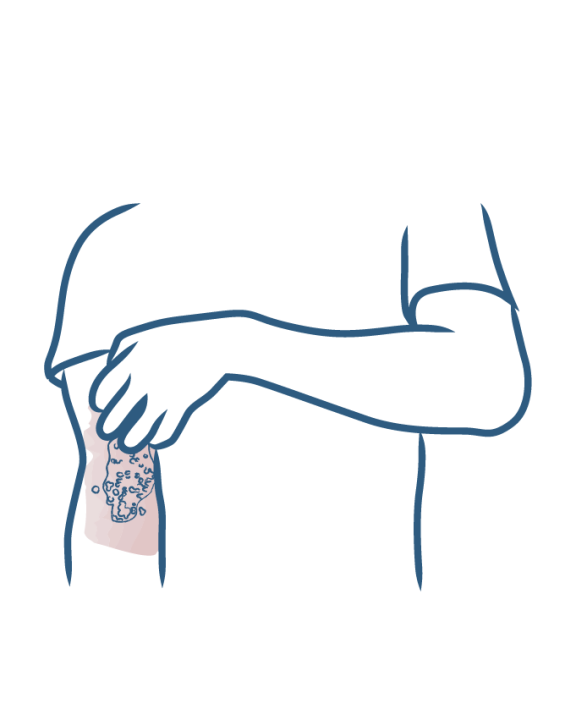- SUMMARY
- Eczema
What you should know about eczema
- What is infantile eczema?
- What soap should be used for babies with eczema?
- Eczema in babies: what habits should you adopt?
- Cortisone cream to relieve eczema?
- When should you consult a physician about your baby's eczema?
- Eczema in babies and children: the areas most often affected
- How should you treat baby’s and infant’s eczema?
- Living with eczema day to day
- Eczema: What daily reflexes should you adopt?
- Eczema: can it be cured?
- Swimming pool, swimming when you have eczema?
- What are the habits to avoid when you have eczema?
- What soap should be used for eczema?
- Eczema cream, ointment: what should you use?
- Eczema: how to treat itching
- Eczema: what foods should you eat?
- Which detergent should eczema patients use?
- Eczema: how can flare-ups be avoided?
- Body eczema: hands, feet, arms, back, face, etc.
- Foot eczema
- Arm eczema (elbows, armpits, forearms)
- Eczema of the eyelids, eyes or palpebral eczema
- Leg eczema or varicose eczema
- Eczema on the neck and nape of the neck
- Eczema around the mouth
- Hand and finger eczema (chronic hand eczema)
- Facial eczema
- Scalp eczema
- Eczema on the back
- Eczema on the stomach and belly button
- Eczema in the ears
- What causes eczema?
- Clothing contact eczema
- Stress-induced eczema
- Contact eczema due to cosmetics
- Perspiration-induced eczema
- Contact eczema due to nickel and chromium
- Contact eczema due to medication and topical treatments
- Allergy-induced eczema
- Contact eczema due to cleaning products
- Hereditary eczema

What you should know about eczema
Eczema or atopic dermatitis is a chronic inflammatory skin disease. It is called "inflammatory" because atopic dermatitis is mainly characterized by the appearance of red plaques. It is referred to as "chronic" because it alternates between active phases called flare-ups or attacks and phases of calm called remissions. For a better understanding, the progression of atopic dermatitis can be represented as a wave: at the top of the wave is the attack; at the bottom of the wave is the remission. During the lull phases, there may be no symptoms, or just dry skin. However, eczema is there, it is not just "in the head".

Is eczema contagious?
Eczema or atopic dermatitis is the fluctuating appearance of non-contagious red plaques on the skin. Eczema is not contagious, although this is still a common misconception at school or at work. Atopic dermatitis is a very common disease, but it remains poorly understood by the general public, since some people still think that you can get it by shaking hands. It is up to us to challenge these preconceived ideas!
About atopic dermatitis
Atopic dermatitis is a genetically determined disease and consists of a double abnormality:
- Skin abnormality: in atopic dermatitis, the skin is weakened and no longer fully plays its role as a barrier. The water contained in the skin escapes while environmental allergens penetrate more easily;
- Immune system abnormality: the immune system is hyper-reactive and overreacts to allergens, which is why eczema symptoms appear.
Atopic eczema is sometimes associated with other symptoms. People with atopic dermatitis can develop a whole associated syndrome called atopic syndrome over the course of their lives: food allergy, asthma, rhinitis, conjunctivitis.
Atopic dermatitis is a disease in its own right and goes beyond the visible plaques: itching, sleep disorders, changes in environment and lifestyle, parental stress, difficulties in applying treatment, etc.

What is contact eczema?
Contact eczema is another common form of eczema, whether or not it is associated with atopic dermatitis. In contact eczema, the inflammatory reaction occurs directly at the site of contact between the skin and the allergenic substance. A wide variety of substances are involved, some of which originate in the workplace and are responsible for job adjustments or even career changes.
Adult eczema
Atopic dermatitis mainly affects young children, but many adults also suffer from it, sometimes for decades. Some have learned to "live with it", others are still looking for solutions and are unable to overcome their disease.
The most frequent forms in adults are atopic dermatitis, particularly when localized on the face, contact eczema and chronic hand eczema. The latter form originates from atopic dermatitis and/or contact eczema, associated with repeated skin irritations. Adults with eczema are sometimes afraid of other people staring at them and sometimes prefer to isolate themselves rather than being seen by others.


What is pregnancy eczema?
Eczema can affect anyone, including pregnant women. In most cases, atopic dermatitis is pre-existing and pregnancy can cause the skin condition to improve or worsen.
What is eczema on black skin?
Atopic dermatitis can affect all skin types, from light to dark. Eczema on black skin presents some unique characteristics. Some symptoms of eczema such as redness are hardly or not at all visible on black skin. Conversely, pigmentation disorders are a real problem for these patients and increase their mistrust of cortisone creams. Applied correctly and according to the medical prescription, cortisone creams are safe, and pigmentation disorders secondary to eczema are generally transitory.

Points to remember
Eczema or atopic dermatitis is much more than a simple skin disease because the impact on daily life, family, work, sleep, social relationships and so on is very real and should absolutely not be neglected.
Solutions exist: if you suffer from eczema, don't hesitate to consult a dermatologist to confirm the diagnosis, set up an adapted treatment and improve the follow-up of this chronic disease.
Our care routines
Skin prone to atopic eczema, contact eczema, chronic eczema and/or, eyelid eczema
Dermatological expertise
To better understand your skin and hair, discover our exclusive content and innovative care products designed to improve your quality of life..





